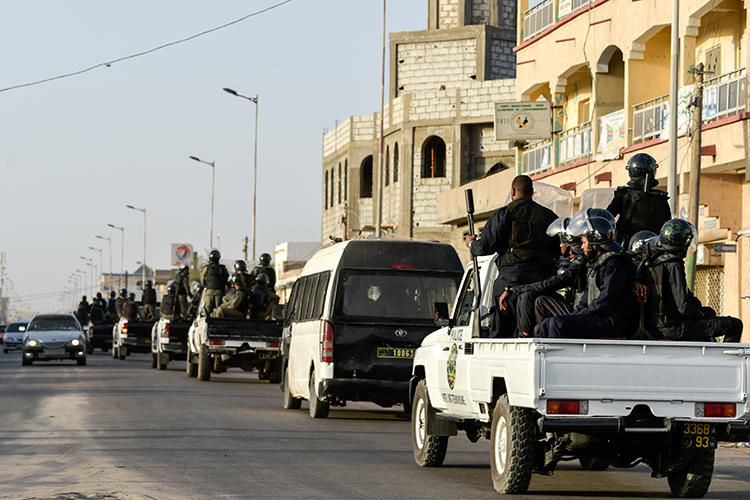New York, July 3, 2019 — Mauritanian authorities should immediately release journalists Seydi Moussa Camara and Ahmedou Ould al-Wadea, restore internet access throughout the country, and allow journalists to report on the results of the country’s presidential elections without fear of reprisal, the Committee to Protect Journalists said today.
On June 26, Mauritanian national police arrested Camara, the director of publishing for the weekly newspaper La Nouvelle Expression, at his home in Nouakchott, the capital, according to local news website Cridem.
Today, police also arrested al-Wadea, a presenter for the Mauritanian broadcaster Al-Mourabitoun TV, in Nouakchott, according to local news websites Future Afrique and al-Akhbar.
Mauritanian journalist Haiba Cheikh Sidati, who has worked with both Camara and al-Wadea and has been following their cases, told CPJ that no charges against either journalist have been made public, and that both have retained legal counsel. He said that Camara is being held at the jail of the National Security Directorate, which is overseen by the Ministry of the Interior, while al-Wadea has been detained in an unknown location.
The journalists are among more than 100 people who have been detained in the wake of Mauritania’s disputed presidential elections on June 22, according to reports. According to the independent internet monitoring group Netblocks, the country has also faced a widespread internet shutdown beginning shortly after the elections.
“Mauritanian authorities should immediately release Seydi Moussa Camara and Ahmedou Ould al-Wadea and allow journalists to comprehensively cover the country’s political transition by restoring internet access nationwide,” said CPJ Middle East and North Africa Program Coordinator Sherif Mansour. “The Mauritanian government must give priority to the public’s access to information at this crucial time.”
CPJ emailed the public relations office of the Mauritanian National Gendarmie for comment but did not immediately receive a response, and calls to the phone number listed on the website of the Mauritanian Regulatory Authority, which regulates internet access in the country, did not go through. CPJ was unable to locate contact information for the Ministry of the Interior.
Netblocks reported widespread internet outages in the country beginning on June 25, describing the situation as a “near-total internet blackout.” Today, sporadic reports on social media indicated that internet access has been restored to some locations, but CPJ could not confirm exactly which cities and regions have access. Netblocks posted an update on July 3 saying that some connectivity had been restored to the country, but that access rates were still below 70% of their normal levels.
Netblocks director Alp Toker told CPJ in an email that “a significant proportion of wireless and fixed-line users are back [online],” but that the organization did not know which specific regions or demographics remain disconnected.
In March, Mauritanian authorities detained bloggers Abderrahmane Weddady and Cheikh Ould Jiddou on false news charges in the run-up to the country’s elections, as CPJ reported at the time.
